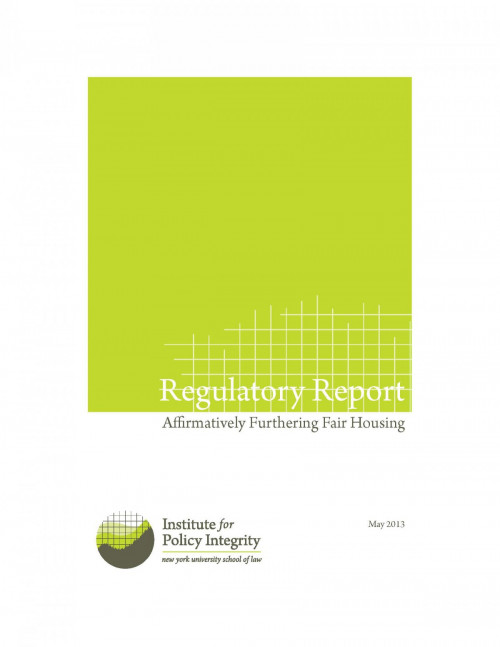The Institute for Policy Integrity produces a variety of publications. Our research reports develop in-depth research on our core issues, while our policy briefs and issue briefs provide focused analysis on more timely or particular topics. Our academic articles and working papers offer original scholarly research and analysis from established experts as well as fresh new voices.
Latest Publications
-

Cost-Benefit Analysis and Agency Independence
In “Cost-Benefit Analysis and Agency Independence,” Professor Michael A. Livermore argues that cost-benefit analysis provides a standard that constrains the exercise of OIRA’s power, helping to preserve the autonomy of government agencies in the face of White House review. This argument challenges the prevailing view that cost-benefit analysis is a tool for the President to impose authority over executive agencies.
-
Burning Rain: The Long-Range Transboundary Air Pollution Project
Book Chapter
This chapter, in Toxic Airs: Body, Place, Planet in Historical Perspective, assesses the development of the first international study to examine the atmospheric transport of pollutants that cause acid precipitation: the long-range transboundary air pollution project.
-
_158_115_90.jpg)
Water Pollution and Regulatory Cooperation In China
The costs of China’s record economic growth—including pollution—threaten to undercut its progress if left unchecked. Standing in the way of China’s efforts to control pollution is a complex political system of overlapping levels of local and national authorities. This paper examines recent efforts to address the ill-aligned incentives lead some officials to allow high levels of pollution.
-
Environmental Awareness in the Atomic Age
Radioecologists and Nuclear Technology
Many biologists who conducted studies on nuclear fallout and waste for the Atomic Energy Commission began to develop concerns about radioactive pollution in the environment from the long-term, cumulative effects of nuclear waste disposal, the use of atomic bombs for construction projects, and the potential ecological devastation wrought by nuclear war. Their new environmental awareness prompted many Atomic Energy Commission ecologists to try to draw congressional attention to the dangers that nuclear technology posed to the environment. This article, published in Historical Studies in the Natural Sciences, highlights reforms in the education and training of ecologists to meet the challenges of the atomic age through the new subfield of “radioecology” as well as research into problems of environmental pollution more broadly.
-

Regulatory Report
Affirmatively Furthering Fair Housing
Decades after the civil rights movement inspired the Fair Housing Act, HUD still has a long way to go before that law’s vision of fair housing is realized. The primary recommendations of this report to the Department of Housing and Urban Development (HUD) are to more clearly define fair housing goals and to measure the progress of locally-based housing providers in meeting the requirements of the 1960’s civil rights statute.
